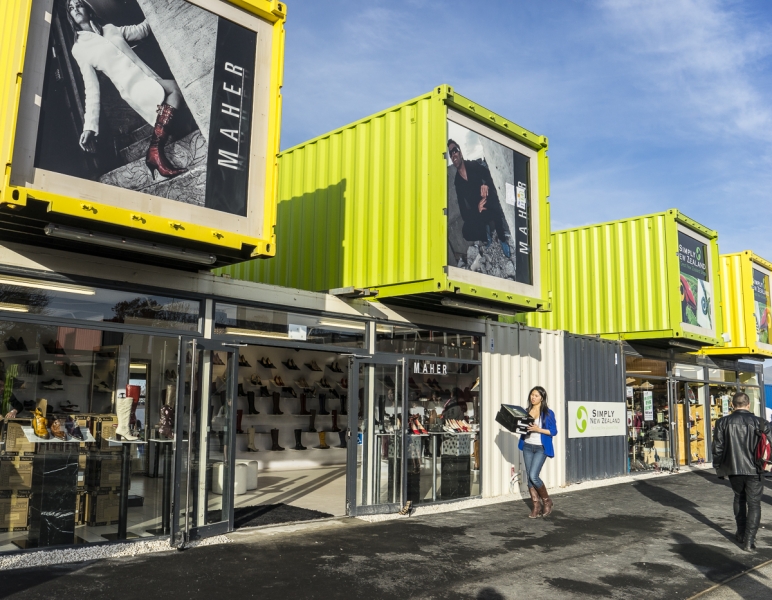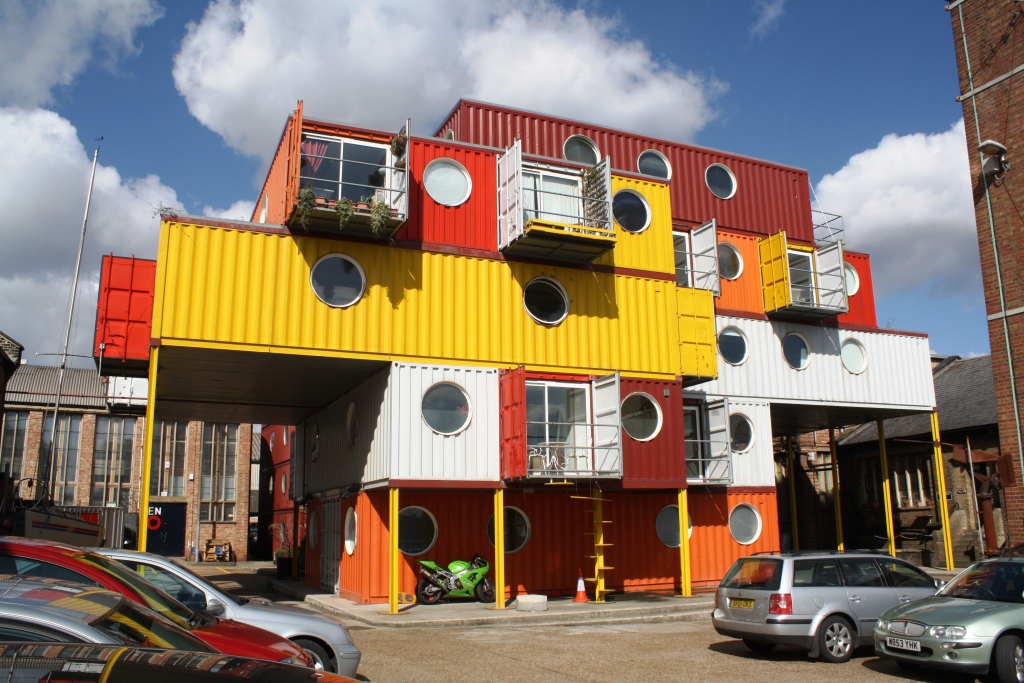
The Re:START shipping container mall was created from the need to breathe new life into the Christchurch New Zealand central city, following the devastating earthquake on 22 February, 2011. The central business owners group looked to build a new temporary central precinct to both transform the “Red Zone” into a vibrant retail space, and to begin the re-construction of the city. Shipping Containers were both a – pretty out there option – and the the ultimate solution to temporarily rebuild the CBD which had over 80% of its area demolished.
The original Re:Start Container mall was constructed from 61 shipping containers (imported from China and costing just over NZ $500,000) and was opened after just 8 weeks of construction! During which workers faced rain snow and earthquake after shocks. Re:START has grown steadily over the past four years, increasing from 27 businesses at the opening in October 2011, to well over 50 businesses 2015. In addition there are market stalls, street performers and buskers.
Designed as a reusable facility, the Re:Start shipping container mall will eventually be “unpacked”, transported and used elsewhere as a recycled resource for the City of Christchurch at other locations.
Construction:
Re:Start Container Mall:
Documentary:
https://www.youtube.com/watch?v=R3NyfO4PRAg
Images Courtesy of: Re:Start




